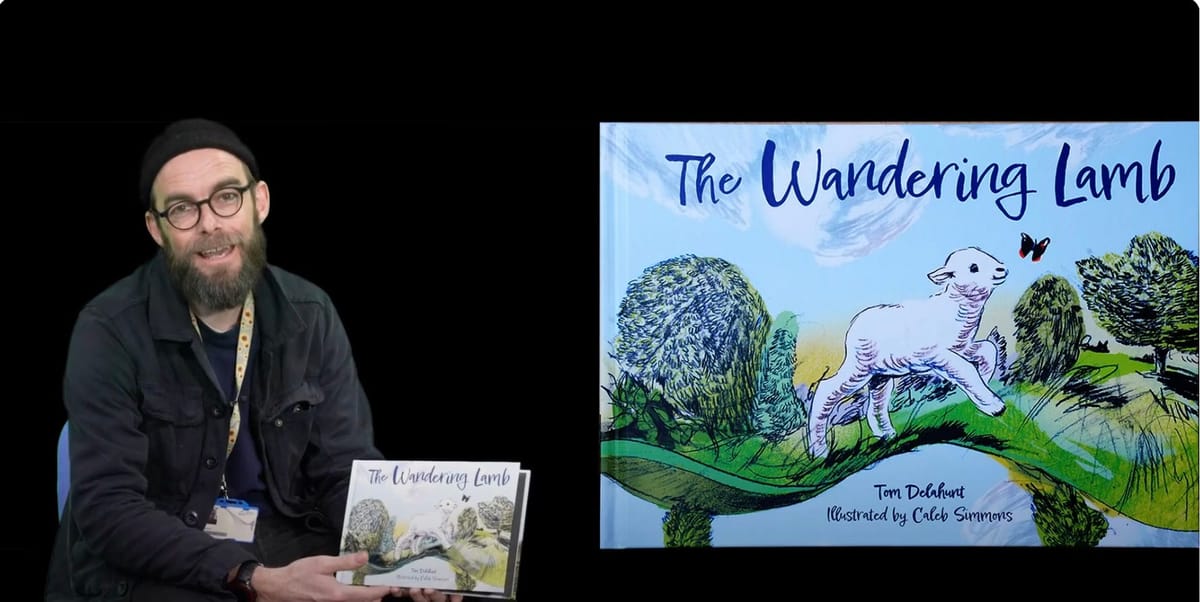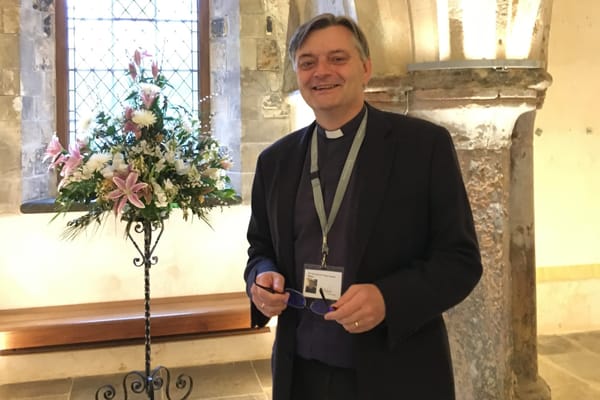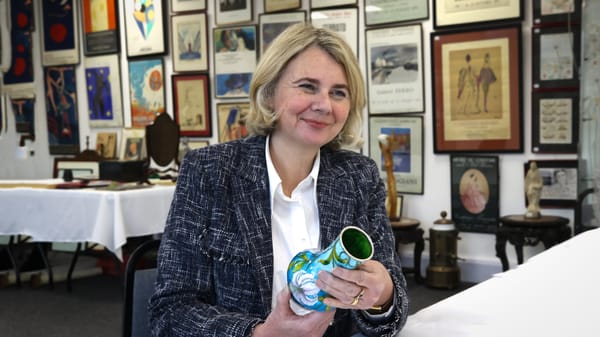“Art is vital, and we are killing it societally”
What Steven asked Tom Delahunt, senior lecturer and doctoral candidate at Canterbury Christ Church, and the Hobo Poet.

Tom Delahunt is a senior lecturer and doctoral candidate at Canterbury Christ Church University. Steven caught up with Tom via Zoom to discuss his doctorate, his alter-ego as the Hobo Poet, how the arts can help Nurses with trauma and improve healthcare and his obsession with multiverses.

What is your official occupation?
I am a senior lecturer and doctoral candidate at Canterbury Christchurch University, but actually, I'm the Hobo Poet. That's my alter-ego.
You've published a children's book?
I have got my children's book, The Wandering Lamb, and I'm also in the process of completing and finalising prints for my second children's book, ‘The Butterfly Farmer’, which is going to be going around six Kent schools, where I'm a poet in residence.
You're also a nursing lecturer as well?
I am, yes. I teach nurses on a number of modules in their second year. I'm aligned to the second year. I also assist with some of the Masters teaching and some of the apprenticeship teaching. I tend to sit across the breadth of the university, but my real love is nursing and social justice, specifically around the positionality of hidden disabilities. If you want a good book, Ted Smith has just written an amazing book around understanding people who are hidden in society. That's really where I come from. I come from a creative therapeutic. Art is vital, and we are killing it societally. Medway has got a massive thriving arts community because where there's poverty and where there's oppression, Paulo Freire suggests the first thing to be born out of oppression is art, and I'm very tied to that position of knowing because I feel hidden myself still. That's the whole point of The Wandering Lamb. People see it as a children's book, but I'm a big advocate of Dr. Seuss, which is hiding politics and hiding art and hiding social deconstructivism and deconstructing reductionist theories within children's literature, because it talks to an adult at the same time as it talks to a child. There's no other literature that does that.
What first brought you to the Medway towns?
It was the placement allocation through Christ Church University when I started the very beginning of my poetic nursing heart journey. I started at Medway. That was the allocation, and I'm grateful to have been there for the number of years that I have because it's run on the goodwill of the sweetest souls and the greatest resilience that I've ever seen, culturally, societally, anywhere in the world. I have travelled, I've been to New Zealand, I've been to France. In terms of healthcare systems that I've looked at, Medway is something very special and the people there are still people that I think of every single day.




